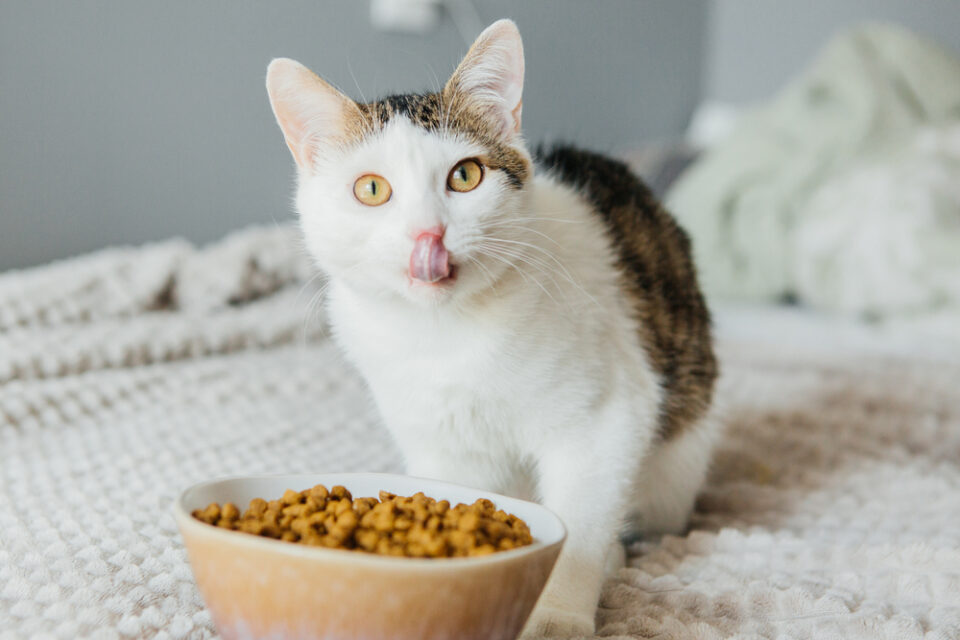"Can Cats Eat Flax Seeds?" the short answer is:
Cats are carnivores, and in the wild, they would not consider plant-based diets. Instead, they would concentrate on hunting small animals for protein and other necessities. Cats, as domesticated animals, rely on humans to provide the animal protein they require to live happy and healthy lives.
There are, however, a few plant-based diets that can be beneficial to cats in some way. Flaxseeds, for example, are promoted as a superfood that can benefit both humans and animals. So, can cats consume flaxseeds? The quick answer is yes! Flaxseeds can be included in a healthy cat diet. Everything you need to know is right here.
A Comprehensive Look at Flax Seeds in Your Cat's Diet
As cat lovers, we are constantly looking for ways to improve our feline friends' health through proper nutrition. The incorporation of various foods, including flax seeds, can arouse curiosity and raise questions about their potential benefits and risks. This essay investigates the nutritional composition of flax seeds, assesses the benefits and potential risks of incorporating them into a cat's diet, investigates their digestibility, and emphasizes the importance of seeking professional veterinary advice for optimal dietary choices.
Flax Seeds' Nutritional Value
"Can Cats Consume Flax Seeds?" Flax seeds are well-known for their nutritional value and potential health benefits. Flax seeds are high in essential nutrients and provide several components that benefit a cat's health.
Omega-3 Fatty Acids: Flax seeds are an excellent source of alpha-linolenic acid (ALA), an essential omega-3 fatty acid that promotes heart health, reduces inflammation, and improves skin and coat condition.
Flax seeds are a fiber powerhouse, promoting digestive health and aiding in hairball prevention, which is especially beneficial for cats.
Protein: Flax seeds contain a significant amount of protein, which helps with muscle maintenance and overall vitality.
Advantages of Feeding Flax Seeds to Your Cat
Flax seeds in your cat's diet may provide several advantages:
Healthy Skin and Coat: The omega-3 fatty acids in flax seeds promote skin health, combat dryness, and contribute to a shiny, lustrous coat.
Gut Health: The dietary fiber content of flax seeds promotes a healthy digestive system and can help with constipation.
Anti-Inflammatory Effects: Omega-3 fatty acids have anti-inflammatory properties, which may benefit cats with inflammatory conditions or joint issues.
Risks of Feeding Flax Seeds
"Can Cats Consume Flax Seeds?" While flax seeds have numerous advantages, there are a few risks to consider:
Flax seeds have a high fat content and are high in calories. Overconsumption can result in excessive calorie intake and potential weight gain.
Digestive Sensitivity: Some cats may experience digestive discomfort or upset if introduced to flax seeds abruptly or in large quantities.
Is it okay for cats to eat flax seeds?
"Can Cats Consume Flax Seeds?" Flax seeds are generally safe for cats when fed in moderation and as part of a balanced diet.
Can Cats Eat Flax Seeds?
Flax seeds can be digested by cats, especially when ground, but gradual introduction and appropriate portion sizes are recommended to avoid digestive issues.
Symptoms of Flax Seed Poisoning in Cats
"Can Cats Consume Flax Seeds?" Excessive consumption of flax seeds may result in symptoms such as diarrhea, vomiting, or abdominal discomfort. It is critical to keep track of your cat's reaction to new foods.
Prevent Cats from Consuming Flax Seeds By Accident
To aid digestion and avoid choking hazards, grind flax seeds. Mix flax seeds into your cat's regular food to add them to their diet.
How Much Flax Seeds Can You Give a Cat?
"Can Cats Eat Flax Seeds?" - For cats, a small daily portion of flax seeds, approximately 1/4 to 1/2 teaspoon, is sufficient to reap potential health benefits without causing adverse effects.
Feeding Frequency and Moderation
Flax seeds should be used as a supplement rather than a primary source of nutrition. Offering flax seeds a few times per week can provide a well-rounded nutritional boost.
Alternatives and Supplements
Balanced commercial cat food is still the foundation of a cat's diet. Consider omega-3 fatty acid supplements formulated specifically for cats as an alternative to flax seeds.
Dietary Variety Is Important
"Can Cats Consume Flax Seeds?" A varied diet ensures that cats get a wide range of nutrients that are essential for their overall health. Introducing new foods, including treats like flax seeds, keeps cats interested and satisfied.
Can Cats Eat Flax Seeds?
In conclusion, when introduced thoughtfully and in appropriate quantities, flax seeds can be a nutritious and valuable addition to a cat's diet.
Last Thoughts on Feeding Flax Seeds to Your Cat
While the potential benefits of flax seeds are significant, it is critical to incorporate them responsibly and as part of a well-rounded diet that meets all of your cat's nutritional needs.
The Importance of Consulting a Veterinarian for Dietary Advice
"Can Cats Consume Flax Seeds?" Consult a veterinarian who specializes in feline health before introducing any new food into your cat's diet. These professionals can provide personalized recommendations based on your cat's specific needs, ensuring that their dietary choices align with their health goals and overall well-being.
Source https://blogcatmoments.blogspot.com/2023/09/can-cats-eat-flax-seeds-great-potential.html


Đăng nhận xét